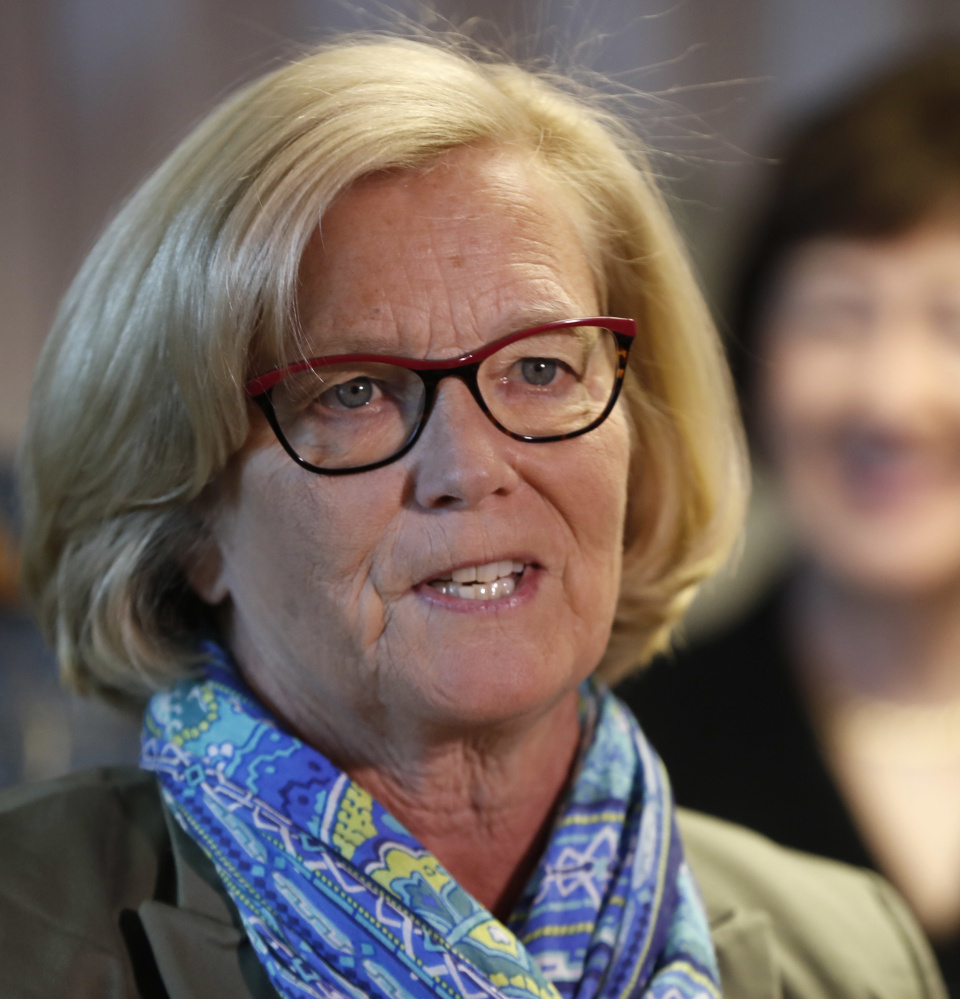Maine’s voice in the national dialogue about arts funding became more influential Thursday, when U.S. Rep. Chellie Pingree was appointed an ex-officio member of the National Council on the Arts. The council advises the National Endowment for the Arts on its grant programs and policy decisions.
The Trump administration proposed defunding the NEA in its current budget proposal. The NEA spends about $1.2 million in Maine each year, including about $500,000 in grants that the Maine Arts Commission distributes to artists and arts organizations across Maine.
Pingree, a Democrat representing Maine’s 1st District, sits on the House Appropriations Committee and the Interior Appropriations Subcommittee, which gives her oversight of both the NEA and National Endowment for the Humanities budgets. Her appointment to the National Council on the Arts strengthens her voice and range of influence, she said.
“This is a great way to enhance what I do on the committee, to be more engaged and aware of the decision process at the NEA and the direction of arts funding, as well as the policies,” she said in a phone interview.
Pingree is one of two nonvoting, ex-officio members of the council. The other is Tammy Baldwin, a senator from Wisconsin.
Pingree is the second member of the advisory committee with ties to Maine. The painter Barbara Prey, who lives part of the year in Tenants Harbor, is among 17 voting members of the committee, which include writers, musicians, dancers and administrators. NEA Chairman Jane Chu is among the 17.
Pingree participated in her first meeting with the council Thursday morning. During that meeting, she talked about the role the arts play in sustaining communities across urban and small-town Maine. “I talked with them about the transformation of a town like Rockland, which was so dependent on fishing and has been transformed into a vital and economically diverse community, where people come to visit a museum for the day and also be a part of the working waterfront,” she said. “The arts are a huge part of our tourism industry. People come to Maine for our scenery, our culture and our food.”
Julie Richard, executive director of the Maine Arts Commission, said Pingree’s appointment is good for Maine. There’s a direct link between the money the Maine Arts Commission receives from the NEA and the money it distributes to artists and arts groups in Maine, she said.
“The more funding we can get, the more we can pay out to the field,” Richard said. “She will be sitting at the table when policies and decisions are made and knowledgeable about what is happening and what is being awarded in Maine and around the country.”
This month, the Maine Arts Commission distributed $373,000 in grants to more than 100 artists, nonprofit arts organizations and arts educators as part of its 2017-18 grant cycle. Richard said the arts commission funded 10 percent more applications than it received last year. In addition, the number of applications to the commission’s Partnership Grant program increased by 20 percent.
The commission distributed grants for specific projects to 32 artists and 30 arts organizations, and dozens more partnership and educational grants. Additional grants will be announced in December, including the Maine Artist Fellowships and Traditional Arts Apprenticeship programs, Richard said.
Pingree is confident the federal government will continue to fund the arts. In its budget, the House restored nearly all the NEA money that Trump wanted to cut. But the budget is incomplete and awaits Senate action, she said.
So far, the NEA has fared better than other agencies, like the Environmental Protection Agency, because legislators across urban and rural America understand the importance of the arts and federal arts money. “There is bipartisan understanding that the little grants that came through the NEA and go into communities are just as important in Iowa and Kansas and Oklahoma as in a state like Maine,” Pingree said. “In a state without a lot of resources, even the smallest of grants that people get through the Maine Arts Commission are critically important to rural schools and to the cultural activities in a city like Portland.”
Staff Writer Bob Keyes can be contacted at 791-6457 or at:
bkeyes@pressherald.com
Twitter: pphbkeyes
Send questions/comments to the editors.




Comments are no longer available on this story